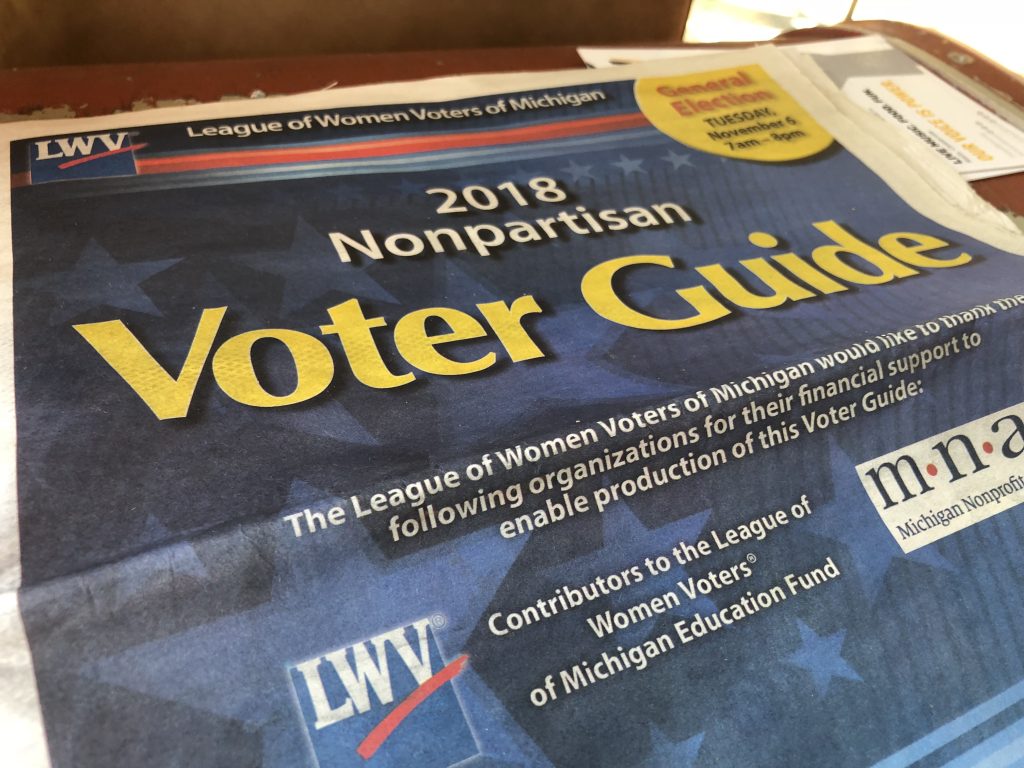MichMash: How To Avoid Surprise, Confusion When You Hit The Bottom of Your Ballot
Every voter knows that moment at the polls when you say, “Yep. Didn’t do my research on that one.”


We are weeks away from the November election and you’ve probably been focusing on those big, top of the ticket races: governor, attorney general, maybe even some state Senate and House races.
But there is more to your ballot.
Many of the names you’ll see will be on the non-partisan section of your ballot. These include positions like local judges and school boards.
As part of the weekly series MichMash, Cheyna Roth and Jake Neher talk about these important races that people tend to forget about, and how to avoid surprise and confusion when you hit the question about who should serve as your next probate judge.
Click on the audio player above to hear that conversation.
So where do I turn to find information about these candidates and issues?
There are some great resources available.
For local judge on the ballot, local bar associations often sponsor voter education initiatives such as candidate forums and voter guides.
Here’s information from the Oakland County Bar Association and the Detroit Bar Association, for example.
The League of Women Voters does a comprehensive, nonpartisan voter guide each election that includes information about candidates in these local, down-ballot races.
Organizations such as Citizen Detroit exist to inform voters about local issues and candidates using voter forums and workbooks.
But there’s probably not enough work happening in these areas
Sheila Cockrel is the founder and CEO of Citizen Detroit. She’s also a former member of Detroit’s city council.
“In the absence of having information, (people sometimes) just decide not to vote in those races,” says Cockrel, “which is not a good thing either.”
Cockrel says she’d like to see more local organizations with differing perspectives and opinions — who also have direct knowledge of and contact with these candidates — create “cheat sheets” that say how qualified candidates are for the positions they seek.
The first thing you should do is know what is going to be on your ballot in the first place
“It’s extra important in these races to do your homework before you get to the polls,” says Roth. “You’re not going to have that quick indicator — that R or that D — to let you know offhand if this candidate is going to mesh with your political views. So, you’ve got to do that research.”
Roth says there are some things to look into with each candidate: What have they said about controversial issues in the past? Are they backed by certain special interest groups? Were they nominated by a party, as our state Supreme Court nominees are, even though they’re on the “non-partisan” part of the ballot.
But first thing’s first — make sure you check out your sample ballot so you can see exactly which candidates and questions you’ll decide in November before you go to the polls. You can view yours here.
